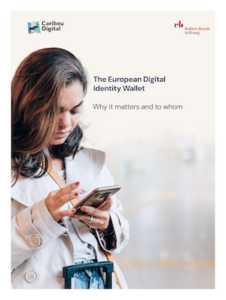What trade-offs in privacy do low-income people make in dealing with state identity systems, and on what basis? We examine perspectives on Aadhaar, a national identification system for Indian residents that assigns a 12-digit number based on biometric identifiers. We draw on qualitative interviews with low-income respondents (N = 150) in six sites spanning three Indian states. In their encounters with state identity systems, respondents weigh their privacy concerns against their need to be seen by the state and in light of their previous interactions with the state. They negotiate their privacy practices by gauging what they are offering their data in exchange for and whether the rationale for data collection resonates with them. In parallel, they use their previous interactions with the state to make decisions about when to be visible to the state and when they value their privacy more and in evaluating whether information collectors and their tools are credible. Finally, we find preliminary indications that respondents harbor unique privacy concerns around the networked nature of identity systems such as Aadhaar.
Explore latest publications

The European Digital Identity Wallet: Why it matters and to whom
By Caribou Digital
Digital Identity, Governance of Digitalization, Refugees and Forced Migration
The European Digital Identity Wallet: Why it matters and to whom
Digital Identity, Governance of Digitalization, Refugees and Forced Migration
Policy Brief
By Caribou Digital
June 25, 2024
By Caribou Digital

Earth Observation for Public Health: Topical Overview
By Carlotta Maucher
Earth Observation / Satellite Imagery, Health
Earth Observation for Public Health: Topical Overview
Earth Observation / Satellite Imagery, Health
Policy Brief
By Carlotta Maucher
May 28, 2024
By Carlotta Maucher

Youth in Digital Africa: Our connections. Our choices. Our future.
By Caribou Digital
Digital Financial Services / Financial Inclusion, Education/Skills/Upskilling, Gender in a Digital Age, Inclusive Digital Business Models, Persons Living with Disabilities, Platform Economies and Livelihoods
Youth in Digital Africa: Our connections. Our choices. Our future.
Digital Financial Services / Financial Inclusion, Education/Skills/Upskilling, Gender in a Digital Age, Inclusive Digital Business Models, Persons Living with Disabilities, Platform Economies and Livelihoods
Research Report
By Caribou Digital
May 23, 2024
By Caribou Digital
Pages
- Blog
- Call for Proposals: Platform Livelihoods Gender Study
- Collaboration for Impact
- Event Management
- Gender
- Home
- Identity and migration
- Live Learning: MTN DigiFin Fintech Edition – Apps in action
- Measurement and Impact Services
- MTN Live Learning
- Newsletters
- People
- Platform-Led Transformational Upskilling Report
- Projects & Services
- Publications
- Request for Proposals Video Storytelling: Platform Livelihoods & Covid-19
- Senior MEL advisor
- Skills for a Digital Age
- Strive Community Privacy
- Strive EU Privacy Policy


